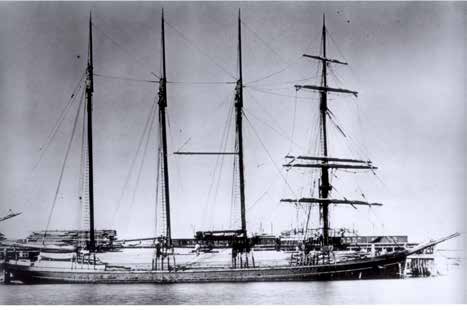“Fugitive Slave / Fugitive Sailor”: Sailors’ Wardship and the Rhetoric of Emancipation in United States Maritime Reform, 1895-1898
DOI:
https://doi.org/10.25071/2561-5467.1248Keywords:
citizenship, free labor, merchant seamen, Progressive Era, Sailor's Union of the Pacific, US ConstitutionAbstract
In 1897, the United States Supreme Court ruled against four white merchant seamen protesting their arrest for desertion from the barque Arago in Astoria, Oregon, providing belated definition to the Thirteenth Amendment’s clause abolishing involuntary servitude. The Supreme Court’s ruling against the Arago sailors represented a nadir in the devolution of Reconstruction-era conceptions of free labor into an increasingly draconian system that insisted on absolute freedom of contract up to the point of self-enslavement. Competing conceptions of paternalism and sailors’ wardship motivated the cooptation of the rhetoric of emancipation by maritime reformers with the aim of affirming sailors’ rights to the full protections of the Thirteenth Amendment, and by
extension United States citizenship.
References
Alborn, Denise. “Shanghai Days in Astoria.” Cumtux: Clatsop County Historical Society Quarterly 9, no. 1 (Winter 1988): 9-15. https://archive.org/details/cumtux.19880901
Fingard, Judith. Jack In Port: Sailortowns of Eastern Canada. Toronto: University of Toronto Press, 1982.
Leon Fink, “From Autonomy to Abundance: Changing Beliefs about the Free Labor System in Nineteenth- Century America,” in Stanley L. Engerman, ed., Terms of Labor: Slavery, Serfdom, and Free Labor. Palo Alto, CA: Stanford University Press, 1999.
Foner, Eric. Reconstruction: America’s Unfinished Revolution, 1863-1877. New York: Harper Perennial Classics, 1988.
Gilje, Paul. Free Trade and Sailors’ Rights in the War of 1812. New York: Cambridge University Press, 2013.
Jung, Moon-Ho. Coolies and Cane: Race, Labor, and Sugar in the Age of Emancipation. Baltimore: Johns Hopkins University Press, 2006.
McDaniel, W. Caleb “The Bonds and Boundaries of Abolitionism.” Journal of the Civil War Era 4, no. 1 (March 2014): 84-105. https://doi-org/10.1353/cwe.2014.0021
Norris, Martin J. “The Seaman as Ward of the Admiralty.” Michigan Law Review, 52, no. 4 (February 1954): 479-504. https://repository.law.umich.edu/mlr/vol52/iss4/2
Rafferty, Matthew Taylor. The Republic Afloat: Law, Honor, and Citizenship in Maritime America. Chicago: University of Chicago Press, 2013.
Rediker, Marcus. Between the Devil and the Deep Blue Sea: Merchant Seamen, Pirates and the Anglo-American Maritime World, 1700-1750. New York: Cambridge University Press, 1987.
Rediker, Marcus and Peter Linebaugh. The Many-Headed Hydra: Sailors, Slaves, Commoners, and the Hidden History of the Revolutionary Atlantic. Boston: Beacon Press, 2000.
Richardson, Heather Cox. The Death of Reconstruction: Race, Labor, and Politics in the Post-Civil War North, 1865-1901. Cambridge: Harvard University Press, 2001.
Salman, Michael. The Embarrassment of Slavery: Controversies over Bondage and Nationalism in the American Colonial Philippines. Berkeley: University of California Press, 2001.
Soifer, Aviam. “The Paradox of Paternalism and Laissez-Faire Constitutionalism: United States Supreme Court, 1888-1921.” Law and History Review 5, no. 1 (Spring 1987): 249-279. https://doi:10.2307/743942
Stanley, Amy Dru. From Bondage to Contract: Wage Labor, Marriage, and the Market in the Age of Slave Emancipation. New York: Cambridge University Press, 2006.
Steinfeld, Robert J. Coercion, Contract, and Free Labor in the Nineteenth Century. New York: Cambridge University Press, 2001.

Downloads
Published
How to Cite
Issue
Section
License

This work is licensed under a Creative Commons Attribution-NonCommercial 4.0 International License.
